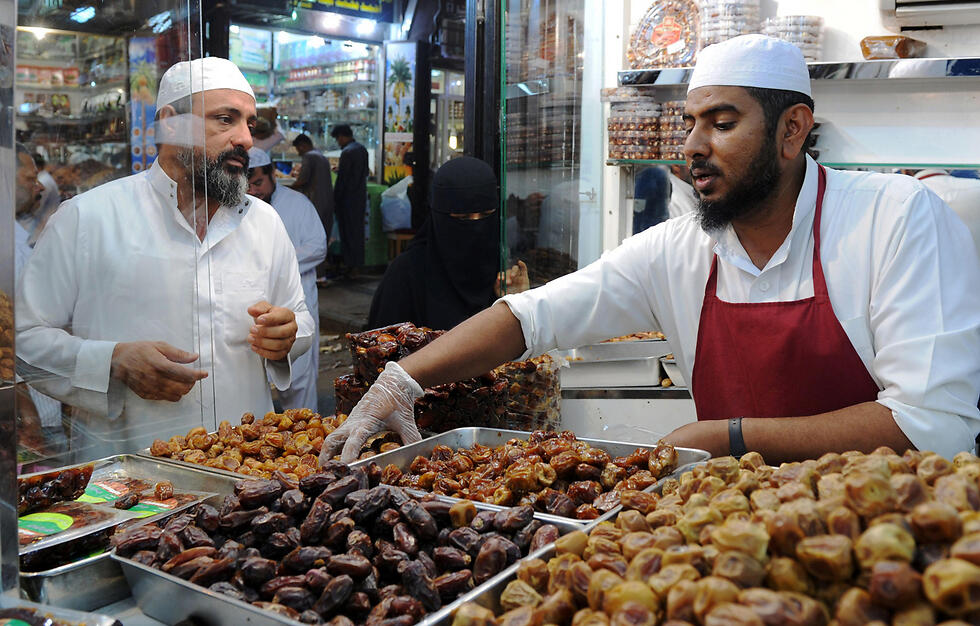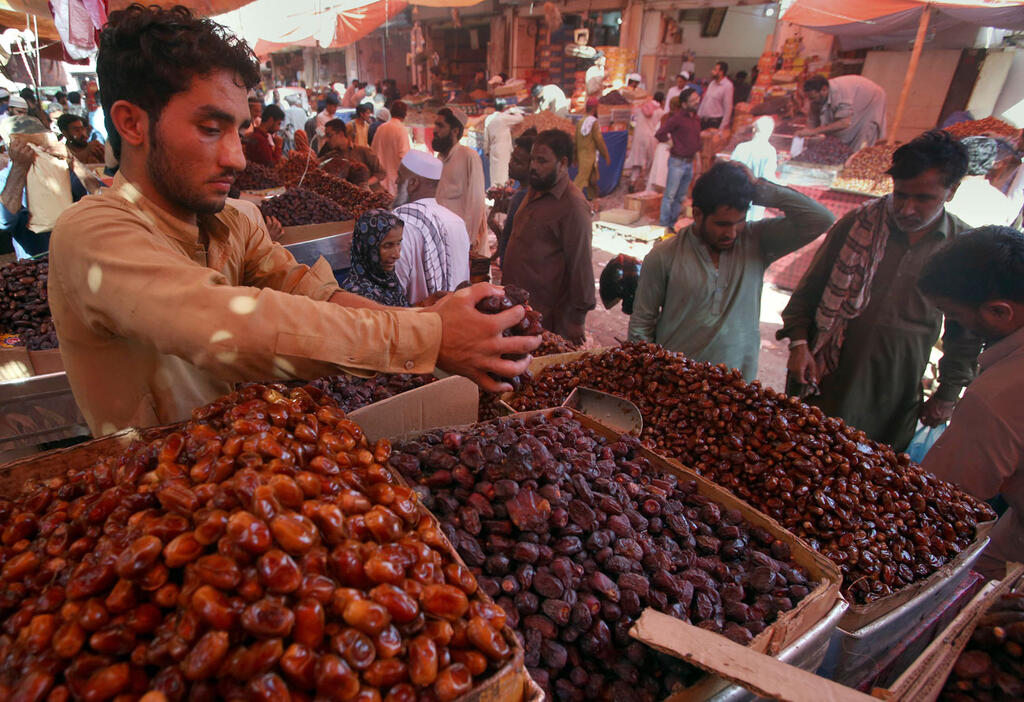Every year, just before the start of Ramadan, a boycott against Israeli dates emerges, not just in Arab nations, but also in European marketplaces. Pro-Palestinian organizations that oppose Israel initiate this boycott against dates grown in the country, alleging that these are cultivated in "settlements in the occupied Jordan Valley." These boycott calls begin ahead of Ramadan but persist throughout the holy month, given the significant role dates play in Ramadan traditions.
Read more:
In the Muslim Arab world, it's a common practice to break the Ramadan fast each evening with a date. The month of Ramadan triggers a high demand for dates and, as a result, a considerable portion of Israeli date production caters to this period.
The boycott appeals are aimed at the Muslim community, urging them not to break their fast with Israeli dates. The boycott campaign on social media platforms provides guidance on identifying Israeli dates amid the plethora of dates available in the markets. The boycott proponents claim that some Israeli date packages do not disclose their Israeli origin, alleging that Israel attempts to conceal this fact to continue their sales unhindered.
"Friends of Al-Aqsa," a British organization that supports Hamas, is one of the leading entities advocating for the boycott against Israeli dates in recent years. Ahead of the current Ramadan, the organization published a video in which one of its activists explains how Israel allegedly tries to evade the boycott and obscure the origin of the dates in the packages sold. The speaker in the video asserts that some packages of Israeli dates are labeled as "Product of South Africa."
This year, the boycott against Israeli dates is part of broader calls for boycotts against Israeli products and companies that collaborate with Israel, following the conflict in the Gaza Strip. The boycott has drawn attention in recent weeks, partly due to an article published in the Hebrew business publication The Marker before Ramadan. The article suggested that there is concern in Israel about a potential boycott on Israeli dates during the Muslim holy month. It highlighted that a significant campaign to market Israeli Medjool dates abroad was cancelled over fears of a boycott and negative publicity. A source in the industry was quoted as saying that anyone who sees an Israeli product thinks twice.
Arabic media outlets quickly picked up on the Israeli publication, using it to highlight Israeli concerns and to suggest that the boycott calls are having an impact. Al-Jazeera network reported that a new battleground has opened against Israel, this time in European shops against its dates. The network aired a video alleging that Israel, a major exporter of dates, is apprehensive about the boycott calls against its dates and is struggling to sell them in European markets.
The boycott was not only covered by Al-Jazeera; The Turkish network TRT aired a video calling on people to check the origin of the dates and not to break the Ramadan fast with "occupation dates." Yemen extensively covered the boycott campaign and the Israeli concerns, conveying the message that there is nothing worse to break the fast with than a "Zionist" Israeli date.
It appears that those leading the "Date Boycott" may not fully recognize the vital role the date industry plays for Palestinians. Their attempts to harm Israel could actually risk the livelihoods of Palestinians: Over 5,000 Palestinians are employed in the date industry, primarily in the Jericho region of the Jordan Valley.
Recently, the organization Friends of Al-Aqsa posted on Twitter, urging Muslims to "check the label and boycott dates from Israel, the West Bank and the Jordan Valley" to avoid buying Israeli dates ahead of Ramadan. Interestingly, such a call also implicates Palestinian dates. It's worth noting that some of the boycott calls do distinguish between Palestinian date companies, deeming their products "permissible" to buy, and Israeli companies.
There are many Israeli stakeholders in the date industry, and they employ hundreds of Palestinians, either in packaging facilities or on the plantations. Therefore, any damage to the Israeli date industry or calls for its boycott would inevitably also impact the Palestinian economy.




